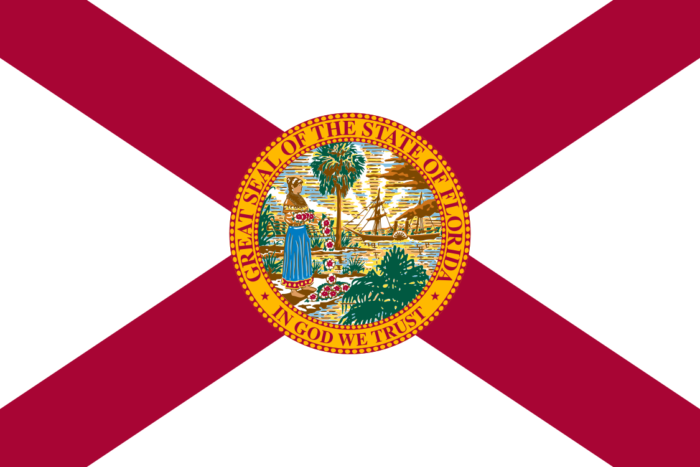National
Incarceration for HIV crimes in Florida cost taxpayers $12 million
Findings show that Black people and women are disproportionately affected by the state’s HIV criminal laws.

LOS ANGELES – New analysis from the Williams Institute at UCLA School of Law finds that as many as 154 people have been incarcerated for HIV crimes in Florida, costing the state more than $12 million over the last two and a half decades.
HIV criminalization is a term used to describe laws that either criminalize otherwise legal conduct or increase the penalties for illegal conduct based upon a person’s HIV-positive status. Florida has HIV-specific criminal laws that criminalize specific types of behaviors, such as sex work and blood donation.
Using data from the Florida Department of Corrections, researchers analyzed prison sentences stemming from the enforcement of HIV-related crimes in Florida between 1997 and 2020. Findings show that Black people and women are disproportionately affected by the state’s HIV criminal laws. Enforcement of HIV crimes from 2018 to 2019 was the highest seen in Florida in a decade.
“Our research shows that Florida continues to criminalize people living with HIV,” said lead author Nathan Cisneros, the HIV Criminalization Analyst at the Williams Institute. “Over 350 people have been convicted under Florida’s HIV criminalization laws—none of which require actual transmission or even the possibility of transmission. And 154 people have gone to prison in the past 25 years, costing Florida taxpayers at least $12 million to house them in state prisons.”
Between 1997 and 2020, at least 154 people were incarcerated in Florida prisons for HIV-related crimes
KEY FINDINGS
- There have been at least 358 separate convictions for HIV-related offenses in Florida since 1986.
- Between 1997 and 2020, at least 154 people were incarcerated in Florida prisons for HIV-related offenses.
- Six in ten of the HIV-related convictions during this time were connected to sex work.
- The number of new prison sentences was higher in 2018 and 2019 than in any other year since 2007. In 2020, during the COVID-19 pandemic, there was only one new prison sentence, the lowest since 1997.
- In 2018, Black people made up 45% of Florida’s people living with HIV, but 56% of people with prison sentences for HIV-related crimes.
- In 2018, women were 27% of people living with HIV in Florida, but 51% of those with HIV-related prison sentences.
- People in Florida have been sentenced to a total of 702.4 years in prison for HIV-related convictions.
- The average sentence length for the 154 sentenced individuals was 3.4 years, and people served on average 70% of their prison sentence for HIV offenses.
- The average annual cost of incarcerating a person for HIV crimes between 1997 and 2020 in Florida was $23,552.
- The total cost of incarcerating people in prisons for HIV crimes in Florida during this period was $12 million.
New York
Two teens shot steps from Stonewall Inn after NYC Pride parade
One of the victims remains in critical condition

On Sunday night, following the annual NYC Pride March, two girls were shot in Sheridan Square, feet away from the historic Stonewall Inn.
According to an NYPD report, the two girls, aged 16 and 17, were shot around 10:15 p.m. as Pride festivities began to wind down. The 16-year-old was struck in the head and, according to police sources, is said to be in critical condition, while the 17-year-old was said to be in stable condition.
The Washington Blade confirmed with the NYPD the details from the police reports and learned no arrests had been made as of noon Monday.
The shooting took place in the Greenwich Village neighborhood of Manhattan, mere feet away from the most famous gay bar in the city — if not the world — the Stonewall Inn. Earlier that day, hundreds of thousands of people marched down Christopher Street to celebrate 55 years of LGBTQ people standing up for their rights.
In June 1969, after police raided the Stonewall Inn, members of the LGBTQ community pushed back, sparking what became known as the Stonewall riots. Over the course of two days, LGBTQ New Yorkers protested the discriminatory policing of queer spaces across the city and mobilized to speak out — and throw bottles if need be — at officers attempting to suppress their existence.
The following year, LGBTQ people returned to the Stonewall Inn and marched through the same streets where queer New Yorkers had been arrested, marking the first “Gay Pride March” in history and declaring that LGBTQ people were not going anywhere.
New York State Assemblywoman Deborah Glick, whose district includes Greenwich Village, took to social media to comment on the shooting.
“After decades of peaceful Pride celebrations — this year gun fire and two people shot near the Stonewall Inn is a reminder that gun violence is everywhere,” the lesbian lawmaker said on X. “Guns are a problem despite the NRA BS.”
New York
Zohran Mamdani participates in NYC Pride parade
Mayoral candidate has detailed LGBTQ rights platform

Zohran Mamdani, the candidate for mayor of New York City who pulled a surprise victory in the primary contest last week, walked in the city’s Pride parade on Sunday.
The Democratic Socialist and New York State Assembly member published photos on social media with New York Attorney General Letitia James, telling followers it was “a joy to march in NYC Pride with the people’s champ” and to “see so many friends on this gorgeous day.”
“Happy Pride NYC,” he wrote, adding a rainbow emoji.
Mamdani’s platform includes a detailed plan for LGBTQ people who “across the United States are facing an increasingly hostile political environment.”
His campaign website explains: “New York City must be a refuge for LGBTQIA+ people, but private institutions in our own city have already started capitulating to Trump’s assault on trans rights.
“Meanwhile, the cost of living crisis confronting working class people across the city hits the LGBTQIA+ community particularly hard, with higher rates of unemployment and homelessness than the rest of the city.”
“The Mamdani administration will protect LGBTQIA+ New Yorkers by expanding and protecting gender-affirming care citywide, making NYC an LGBTQIA+ sanctuary city, and creating the Office of LGBTQIA+ Affairs.”
U.S. Supreme Court
Supreme Court upholds ACA rule that makes PrEP, other preventative care free
Liberal justices joined three conservatives in majority opinion

The U.S. Supreme Court on Friday upheld a portion of the Affordable Care Act requiring private health insurers to cover the cost of preventative care including PrEP, which significantly reduces the risk of transmitting HIV.
Conservative Justice Brett Kavanaugh authored the majority opinion in the case, Kennedy v. Braidwood Management. He was joined by two conservatives, Chief Justice John Roberts and Justice Amy Coney Barrett, along with the three liberal justices, Sonia Sotomayor, Elena Kagan, and Ketanji Brown-Jackson.
The court’s decision rejected the plaintiffs’ challenge to the Affordable Care Act’s reliance on the U.S. Preventative Services Task Force to “unilaterally” determine which types of care and services must be covered by payors without cost-sharing.
An independent all-volunteer panel of nationally recognized experts in prevention and primary care, the 16 task force members are selected by the secretary of the U.S. Department of Health and Human Services to serve four-year terms.
They are responsible for evaluating the efficacy of counseling, screenings for diseases like cancer and diabetes, and preventative medicines — like Truvada for PrEP, drugs to reduce heart disease and strokes, and eye ointment for newborns to prevent infections.
Parties bringing the challenge objected especially to the mandatory coverage of PrEP, with some arguing the drugs would “encourage and facilitate homosexual behavior” against their religious beliefs.
-

 U.S. Supreme Court3 days ago
U.S. Supreme Court3 days agoSupreme Court upholds ACA rule that makes PrEP, other preventative care free
-

 U.S. Supreme Court3 days ago
U.S. Supreme Court3 days agoSupreme Court rules parents must have option to opt children out of LGBTQ-specific lessons
-

 India5 days ago
India5 days agoIndian court rules a transgender woman is a woman
-

 National4 days ago
National4 days agoEvan Wolfson on the 10-year legacy of marriage equality












